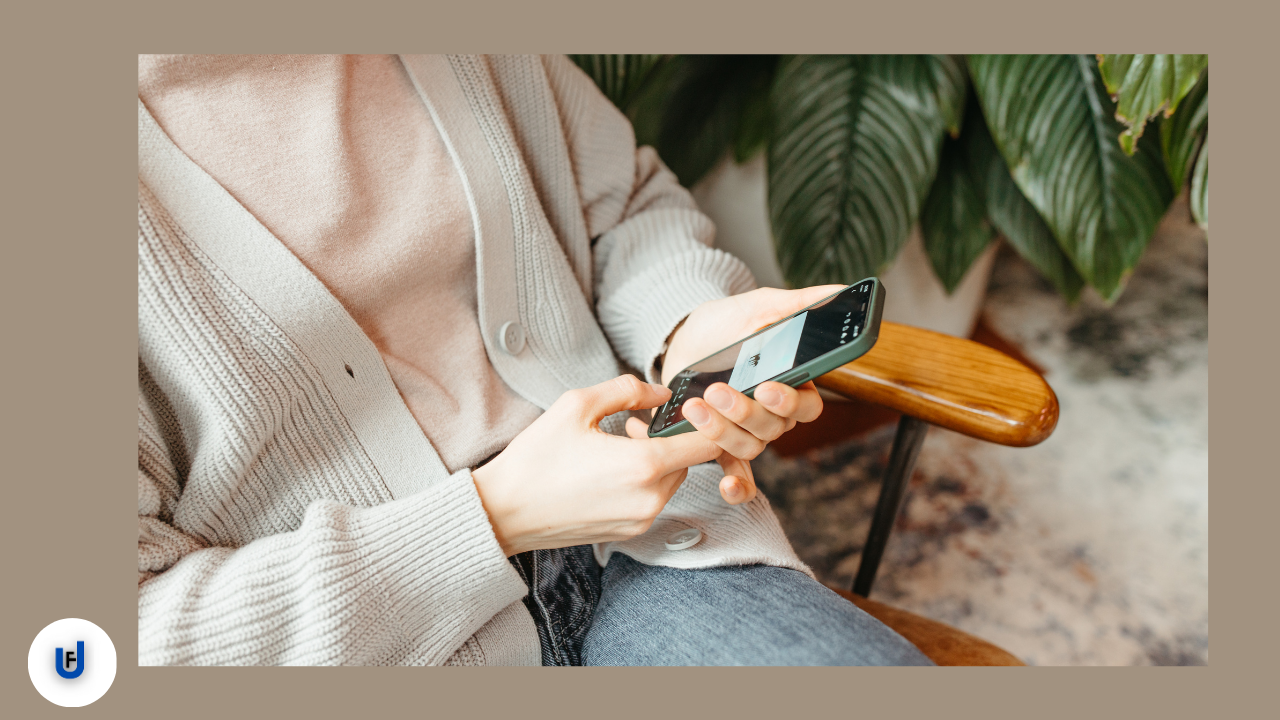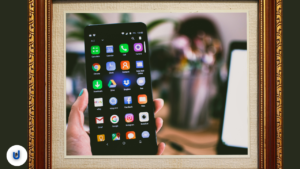Introduction:
Mobile generally refers to portable electronic devices, often referring to mobile phones or smartphones. These devices are designed for on-the-go use and typically include features such as calling, texting, internet browsing, and various applications. Mobile can also refer to the mobile version of websites or apps optimised for use on smartphones and tablets. Is there a specific aspect of mobile technology you’re interested in?
Thank you for reading this post, don't forget to subscribe!Uses of Mobile:
Mobile devices have a wide range of uses, including:
1. Communication:
Making calls, sending texts, and using messaging apps.
2. Internet Browsing:
Accessing information, websites, and online services.
3. Social Media:
Connecting with others through platforms like Facebook, Instagram, and Twitter.
4. Email:
Managing and sending emails on the go.
5. Navigation:
Using GPS for maps and directions.
6. Entertainment:
Watching videos, listening to music, and playing games.
7. Productivity:
Using productivity apps for tasks, calendars, and notes.
8. Photography:
Taking photos and recording videos.
9. Health and Fitness:
Tracking health metrics, using fitness apps, and monitoring wellness.
10. Online Shopping:
Making purchases through e-commerce apps.
11. Banking:
Managing finances, transferring money, and making payments.
12. News and Information:
Keeping up with current events and accessing news sources.
13. Education:
Learning through educational apps and accessing online courses.
14. Work:
Remote work, accessing work-related apps, and staying connected for business purposes.
Effects of Mobile:
The widespread use of mobile devices has had both positive and negative effects on individuals and society:
Positive Effects:
1. Communication:
Mobile devices facilitate instant communication, allowing people to stay connected regardless of physical distance.
2. Information Access:
Easy access to information through the internet helps users stay informed about news, events, and a wide range of topics.
3. Productivity:
Mobile apps enable users to manage tasks, set reminders, and increase overall productivity in both personal and professional contexts.
4. Convenience:
Mobile devices offer on-the-go access to various services, making tasks like banking, shopping, and navigation more convenient.
5. Entertainment:
Mobile devices provide a portable platform for entertainment, including games, videos, music, and social media.
6. Education:
Mobile devices contribute to flexible and accessible learning through educational apps, online courses, and e-books.
Negative Effects:
1. Screen Time:
Excessive use of mobile devices can lead to increased screen time, potentially causing issues like eye strain and sleep disturbances.
2. Social Isolation:
Despite facilitating communication, prolonged mobile use may contribute to social isolation as individuals spend more time interacting with screens than with people in person.
3. Distraction:
Mobile devices can be distracting, especially when used while driving or during important tasks, potentially leading to accidents or decreased productivity.
4. Privacy Concerns:
The use of mobile apps and services may involve the collection of personal data, raising concerns about privacy and data security.
5. Dependency:
Some individuals may develop a dependency on their mobile devices, impacting their ability to disconnect and engage in offline activities.
6. Cybersecurity Risks:
The connectivity of mobile devices exposes users to potential cybersecurity threats such as malware, phishing, and unauthorised access.
Mobile devices offer numerous benefits, their extensive use also raises concerns related to health, social dynamics, and privacy. It’s essential for individuals and society to strike a balance in mobile device usage to maximise the positive impact while mitigating potential drawbacks.
Overuse of Mobile:
Overusing mobile devices can lead to various negative consequences:
1. Physical Health Issues:
Prolonged use can cause issues like eye strain, headaches, neck and back pain, and a condition called “text neck” due to poor posture while using mobile devices.
2. Sleep Disturbances:
The blue light emitted by screens can disrupt sleep patterns, making it harder to fall asleep and negatively impacting overall sleep quality.
3. Decreased Productivity:
Excessive use of mobile devices, especially for non-productive activities, can reduce focus and productivity in work or studies.
4. Social Isolation:
Spending excessive time on mobile devices may lead to decreased face-to-face interactions, potentially causing social isolation and reducing the quality of real-life relationships.
5. Mental Health Issues:
Overuse can contribute to stress, anxiety, and depression. Constant exposure to social media and comparing oneself to others’ curated online lives can negatively impact mental well-being.
6. Reduced Attention Span:
Continuous switching between apps, notifications, and information on mobile devices can lead to a shorter attention span and difficulty concentrating on tasks.
7. Impact on Relationships:
Excessive use of mobile devices, especially during social gatherings or family time, can strain relationships and diminish the quality of interactions.
To mitigate the effects of overuse, setting boundaries, practising digital detox, allocating specific times for device-free activities, and being mindful of screen time can help maintain a healthier balance between the benefits and drawbacks of mobile device usage.
Disease due to overuse of Mobile:
Excessive use of mobile devices hasn’t been directly linked to causing specific diseases, but it can contribute to various health issues:
1. Digital Eye Strain:
Extended screen time can lead to digital eye strain, causing symptoms like dry eyes, blurred vision, headaches, and eye discomfort.
2. Sleep Disorders:
Exposure to the blue light emitted by screens, especially before bedtime, can disrupt the body’s natural sleep cycle, leading to sleep disturbances and insomnia.
3. Text Neck and Musculoskeletal Problems:
Poor posture while using mobile devices can strain the neck, leading to stiffness, pain, and long-term postural problems.
4. Increased Stress and Anxiety:
Excessive use, especially on social media, can contribute to increased stress levels, anxiety, and even symptoms of depression due to constant connectivity and comparison with others.
5. Nomophobia:
This is a term used to describe the fear of being without a mobile device or losing connectivity, which can lead to heightened anxiety and stress levels.
6. Radiation Exposure:
While mobile phones emit non-ionizing radiation, there’s ongoing debate about the potential long-term health effects of prolonged exposure to this radiation. However, current research hasn’t established conclusive evidence linking mobile phone use to serious diseases.
It’s essential to practise moderation and take breaks from prolonged mobile device use to minimise the potential health risks associated with excessive screen time. Maintaining good posture, following the 20-20-20 rule (taking a 20-second break to look at something 20 feet away every 20 minutes), and establishing healthy screen time habits can help reduce the impact on health caused by excessive mobile device usage.
Solution to overuse of Mobile:
To address overuse of mobile devices, consider implementing these strategies:
1. Set Usage Limits:
Use apps or features that track and limit screen time. Many devices have built-in settings allowing you to set screen time limits for specific apps or overall device usage.
2. Establish Boundaries:
Create designated device-free times or zones, such as during meals, before bedtime, or during social gatherings, to encourage healthier habits and better interpersonal connections.
3. Practice Mindfulness:
Be mindful of your device usage. Ask yourself if your screen time is productive or if it’s simply habitual. Consider taking breaks or using apps that remind you to step away from the screen regularly.
4. Utilise Do Not Disturb Mode:
Activate this mode during focused work hours or when you need uninterrupted time to prevent unnecessary notifications from disrupting your concentration.
5. Set App Restrictions:
Disable notifications for non-essential apps or limit notifications to crucial ones to reduce the urge to constantly check your device.
6. Engage in Alternative Activities:
Substitute screen time with activities such as reading, exercising, hobbies, or spending quality time with friends and family.
7. Create a Technology-Free Bedtime Routine:
Avoid screens at least an hour before bedtime to improve sleep quality by reducing exposure to blue light, which can disrupt sleep patterns.
8. Accountability and Support:
Share your goals with friends or family members to create accountability and support each other in reducing screen time.
9. Use Productivity Apps:
Some apps help manage and limit screen time by providing insights into usage patterns and encouraging breaks.
10. Seek Professional Help if Necessary:
If you find it challenging to control your mobile device usage despite efforts to cut back, consider seeking advice from a mental health professional who can provide guidance and support.
Implementing these strategies gradually can help reduce dependency on mobile devices and create a healthier balance between screen time and other aspects of life.
Conclusion:
Mobile devices have revolutionised the way we communicate, work, access information, and entertain ourselves. They offer immense convenience and connectivity, enabling us to stay connected and productive on the go. However, the overuse or misuse of mobile devices can lead to various negative effects on physical health, mental well-being, and social interactions.
Finding a balance in mobile device usage is crucial. Establishing healthy habits, setting boundaries, and being mindful of screen time can help harness the benefits of mobile technology while mitigating potential drawbacks. Embracing technology responsibly allows us to enjoy its advantages without compromising our overall health, relationships, and well-being. Striving for a balanced approach to mobile device usage is key to maximising its benefits while minimising its negative impacts.
FAQ:
Certainly! Here are some frequently asked questions (FAQs) about mobile devices:
Question:What are mobile devices?
Answer: Mobile devices are portable electronic gadgets that allow users to perform various tasks such as communication, accessing the internet, entertainment, productivity, and more. They include smartphones, tablets, smartwatches, and similar handheld devices.
Question:How do mobile phones work?
Answer:Mobile phones use cellular networks to transmit voice calls, text messages, and data. They connect to nearby cell towers to establish communication with other phones or devices.
Question:How can I reduce screen time on my mobile device?
Answer: Limit screen time by setting usage restrictions in your device’s settings, using apps that track screen time, establishing device-free periods, and engaging in alternative activities like reading or exercising.
Question:Are there health risks associated with excessive mobile phone use?
Answer:Excessive use of mobile phones may contribute to issues like digital eye strain, disrupted sleep patterns, posture-related problems, increased stress, and anxiety. However, research on long-term health risks is still inconclusive.
Question:How can I protect my privacy and security on my mobile device?
Answer:Use strong passwords or biometric authentication, keep your device and apps updated, be cautious of public Wi-Fi networks, download apps only from trusted sources, and review app permissions to safeguard your data and privacy.
Question:Can mobile devices be recycled?
Answer:Yes, mobile devices can be recycled to recover materials like metals, plastics, and glass. Recycling helps reduce electronic waste and the environmental impact of discarded devices.
Question:What are some tips for maintaining a healthy balance between using mobile devices and real-life interactions?
Answer:Set boundaries for device use, designate screen-free times or zones, prioritize face-to-face interactions, engage in hobbies or activities that don’t involve screens, and establish tech-free routines, especially before bedtime.
Question:How can I manage distractions from notifications on my mobile device?
Answer:Customise notification settings, turn off non-essential notifications, utilise “Do Not Disturb” mode during focused work or sleep hours, and consider organising notifications to reduce interruptions.
These FAQs aim to provide general information about mobile devices and offer guidance on managing their usage for a healthier and more balanced lifestyle.

